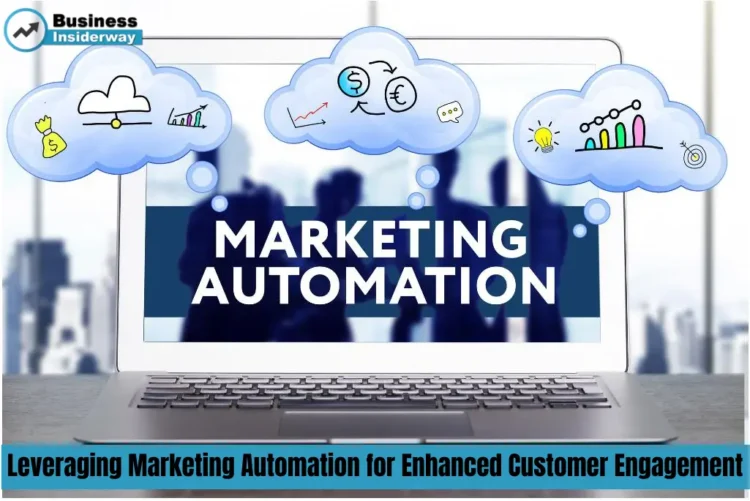Introduction
In the fast-paced realm of digital marketing, staying ahead means adopting strategies that captivate audiences and foster long-term engagement. The rise of marketing automation has paved the way for businesses to interact with their customers more effectively and at scale. Personalizing customer experience has become increasingly feasible thanks to the analytic power and streamlined operations that marketing automation technologies offer. By having adaptive and intelligent systems in place, marketers can now curate communication paths that are both automatic and strikingly relevant to each individual they serve.
For those new to marketing automation, it can best be described as systems that manage marketing processes across multiple channels without manual intervention. It’s a powerful enabler of personalized, efficient marketing that can help organizations of all sizes better align their marketing and sales efforts. More detailed insights can be gleaned from resources like a comprehensive guide on the intricacies and advantages of marketing automation.
Understanding Marketing Automation
Marketing automation is the technological backbone of efficient digital marketing campaigns. It is a multifaceted tool that allows businesses to automate repetitive tasks, segment audiences, and deliver personalized content across various channels. Central to marketing automation is its ability to trigger actions based on specific criteria. For instance, if a user visits a particular product page several times, marketing automation can trigger a targeted email to that user with more information about that product, potentially leading to a conversion.
The consequences of implementing such systems are multifold. Besides significantly reducing the manual workload, marketing automation strengthens the company’s ability to engage meaningfully with its target audience. By analyzing user behaviors and preferences, these systems create a marketing experience that resonates with the customer, increasing brand loyalty and lifetime value. These strategic benefits come together to build a comprehensive ecosystem that nurtures leads and maximizes the impact of marketing campaigns.
The Impact on Customer Journeys
Customers nowadays expect a high degree of personalization — they want to feel like brands understand their needs and preferences. Marketing automation plays a pivotal role in meeting these expectations by molding the customer journey as relevant and enjoyable as possible. When done correctly, automated marketing systems can track user behavior across different touchpoints and engage potential customers with the right message at the right time. Success in this area can lead to greater customer satisfaction and increased sales and provide marketers with valuable insights into consumer behavior patterns.
Enhancing the customer journey extends beyond automation’s capability to send timely messages. It includes evolving tactics such as predictive content, where the system anticipates the user’s next step, offering them precisely what they need before realizing they need it. Marketing automation ensures every interaction counts, bridging the gap between company and customer and fostering a genuine connection.
Integrating Automation into Your Marketing Strategy
Transitioning to a marketing strategy bolstered by automation is a journey that starts with self-assessment. Businesses should evaluate their current marketing processes to identify areas where automation could be beneficial. This could include customer relationship management, lead nurturing, or content distribution. It’s essential to consider the customer lifecycle and how automation can facilitate seamless experiences across the journey — from awareness and consideration to purchase and loyalty.
Following this analysis, selecting the appropriate marketing automation tool that fits the company’s unique objectives becomes the next step. This tool should be robust enough to accommodate the complexity of the campaigns yet intuitively sufficient for marketers to use effectively. Properly implementing these tools requires thorough planning, a clear understanding of the desired outcomes, and a readiness to iterate the processes to align with changing market dynamics. The true power of marketing automation is unlocked when it is seamlessly woven into the overarching business strategy, creating a synergy between marketing efforts and business outcomes.
Best Practices for Automation
To harness the full potential of marketing automation, businesses must engage in strategic planning and ongoing refinement of their automation practices. This begins with setting clear, measurable objectives for what the automation is intended to achieve – whether it’s increasing lead generation, boosting sales conversions, or improving customer retention rates. It is then imperative to maintain a robust database, as the quality of marketing automation depends on the quality of the data it works with. Hence, regular data cleansing and updating are crucial for the success of any automation efforts.
Testing is another vital aspect – continuous A/B testing helps refine email campaigns, lead nurturing sequences, and other automated marketing initiatives. The key is to adopt an experimental attitude, where the insights from each campaign inform the next, gradually optimizing the system’s effectiveness. The significance of such an approach is highlighted in Forbes articles, which delve into marketing automation’s transformative power within the business strategy sphere.
Content Personalization through Automation
The mantra of modern marketing is personalization at scale. Marketing automation is the key to unlocking this, with its ability to deliver custom-tailored messages and offers to individual customers. These personalized communications are made possible by analyzing customer data and behavior, thus creating opportunities for engagement that feel unique to each customer. Implementing techniques like dynamic content allows for the automatic swap of images, offers, or text based on individual user profiles, further enhancing the appeal of the messages sent out.
Content personalization extends beyond addressing the customer by name or recommending products based on past purchases. It encompasses a strategy that involves creating multiple user personas and mapping out content that addresses the needs and preferences specific to each persona. This strategic content curation helps businesses engage their target audiences with relevancy, fostering deeper relationships and driving meaningful interactions that result in better conversion rates.
Email Marketing Automation
When it comes to automating marketing efforts, the power of email should be considered. It remains one of the most direct and personal channels for reaching customers. Marketing automation elevates email from a mass-marketing tool to a precision instrument, employing tactics like trigger-based emails, behavioral targeting, and personalized content to increase the relevance and efficiency of email communications. The practical application is seen in the higher engagement metrics, where automated emails consistently outperform non-automated counterparts in opens and clicks.
Action-based triggers such as welcome emails, transactional emails after a purchase, and re-engagement emails for inactive users ensure that businesses maintain an ongoing conversation with their customers. The end goal is a series of well-timed and relevant emails that support the customer journey, moving them towards a deeper relationship with the brand or a re-purchase decision.
Analytics and Reporting
Understanding the impact of marketing campaigns is critical, and marketing automation platforms offer sophisticated analytics and reporting features that provide deep insights into campaign performance. These data analytics tools allow marketers to see which messages resonate with their audience and which channels are most effective. With this information, marketing teams can decide where to invest their resources to yield the best results.
Furthermore, the capability to track conversions and measure ROI from specific campaigns or channels enables businesses to refine their marketing strategies continuously. The impact of automation on reporting extends to predicting future consumer behaviors by analyzing past patterns. This predictive capability is integral to staying proactive in a dynamic market environment and ensuring that marketing efforts are efficient and impactful.
Future Trends in Marketing Automation
As with all technology-driven fields, marketing automation is subject to constant evolution. Emerging trends point towards a future where AI and machine learning dramatically enhance the predictive accuracy of marketing campaigns, personalizing customer experiences further. These innovations promise a new level of marketing intelligence, with systems capable of predicting user actions before they happen and crafting reactive and proactive campaigns.
The future of such technology holds incredible promise for businesses looking to stay ahead in the digital marketing space. According to industry experts cited in MarTech Advisor, how we currently use marketing automation is just the beginning. As businesses continue to push the boundaries of what’s possible, we can expect marketing automation to become even more integrated into delivering seamless customer experiences.














